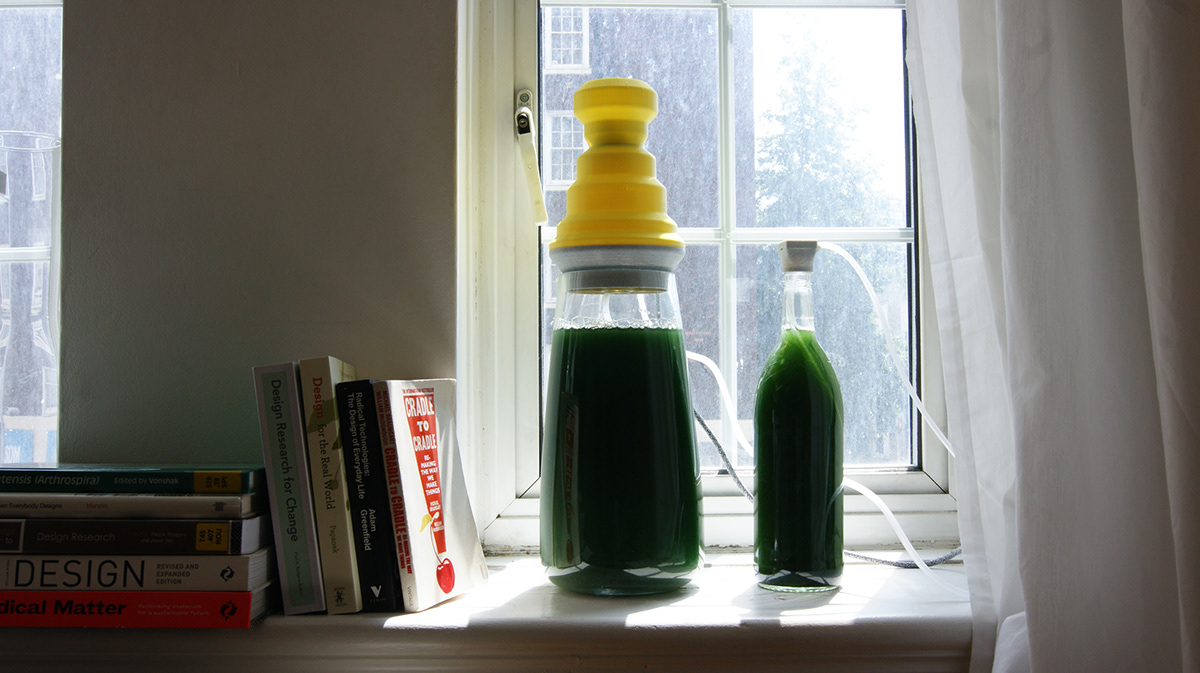Spirulina Society provides open-source tools and knowledge for domestic Spirulina cultivation. This project aims to normalise the sustainable and efficient cultivation system for an urban lifestyle—where people produce their own food, maintain their wellbeing, cut down the waste and reduce the ecological footprint simultaneously.
Learn more: https://spirulinasociety.com
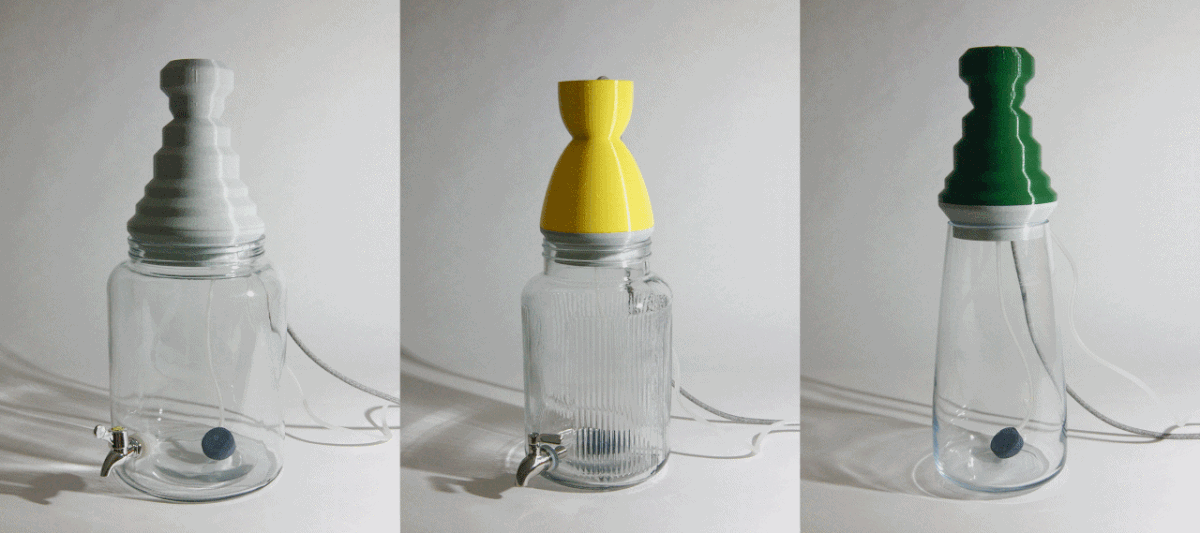
The 3D models of the cultivation tools are available for people to download digitally and connect physically with their local makerspaces and manufacturers around the globe. This project promotes local and on-demand production by shifting away from the mass-production model and using the distributed model where it focuses on the movement of data and the use of local material supply chains. The 3D printed collection consists of lids and harvesting funnel that can be fitted with locally and readily available containers.
Project Background
We live in times of climate crisis where our ecosystems are endangered. With food production causing extensive greenhouse gases, deforestation and water shortage. As a collective and individuals, what if we rethink the way we produce and consume our food?
Spirulina, a blue-green alga, is the most ideal food for humankind, according to the UN and WHO. It is rich with vitamins, minerals and antioxidants—it is a plant-based source of complete protein. Spirulina can easily and affordably be grown indoors and only requires a small amount of water and space. By performing photosynthesis, under the optimal condition, the culture can be harvested daily with its ability to grow at speed. Growing Spirulina at home yields several benefits such as reducing carbon emissions and waste, saving money and resources, and improving wellbeing.
In addition, eating nutritious food, in this pandemic era, is vital given what is currently happening with the lack of food in supermarkets. Domestic Spirulina cultivation could enhance better physical and mental health because it can tackle malnutrition, increase productivity and boost the immune system which means more antibodies are present.
On the whole, Spirulina cultivation is truly ideal for the environment, empowerment, and wellbeing.
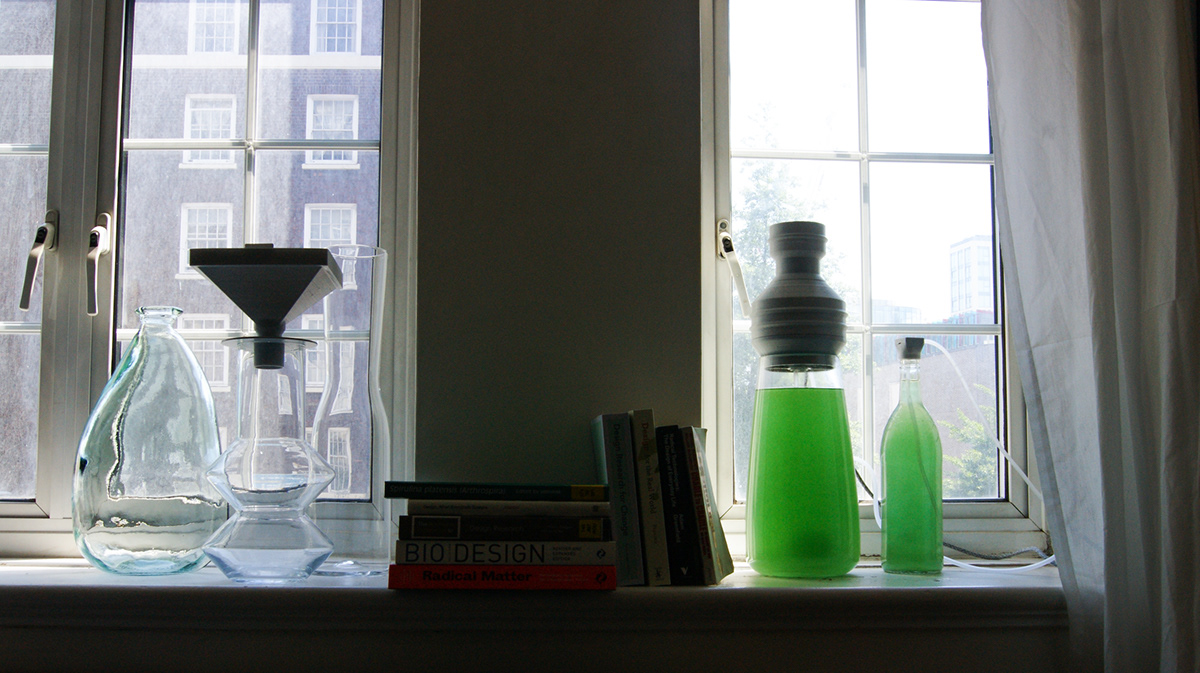
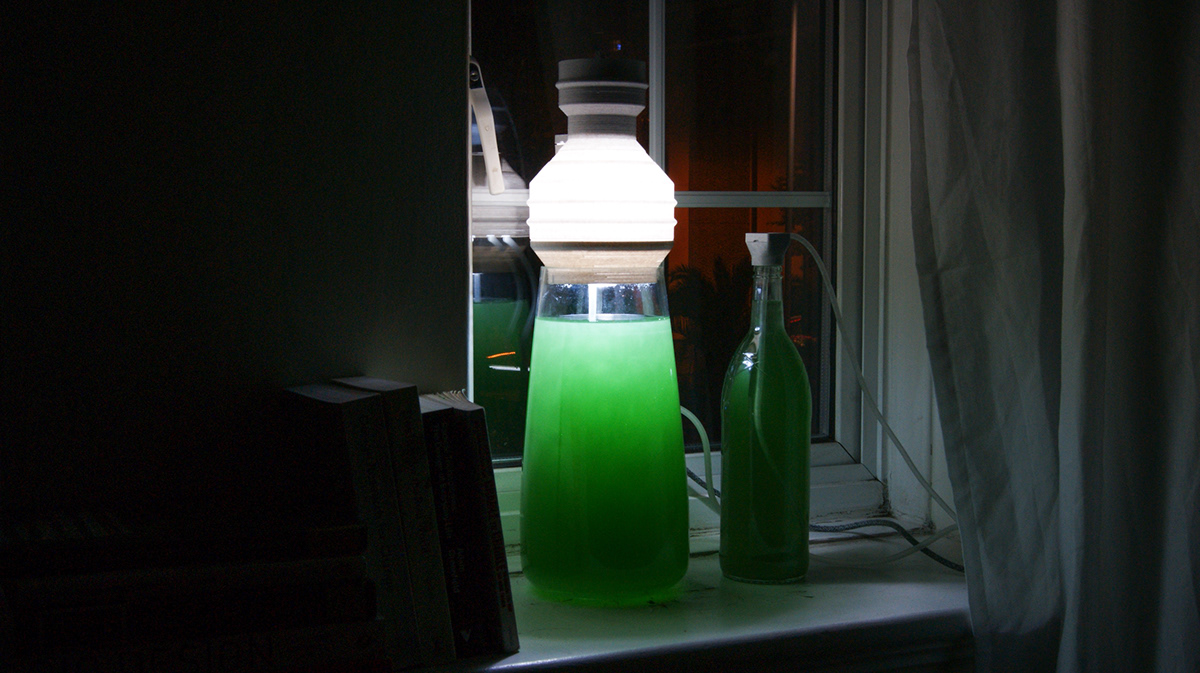


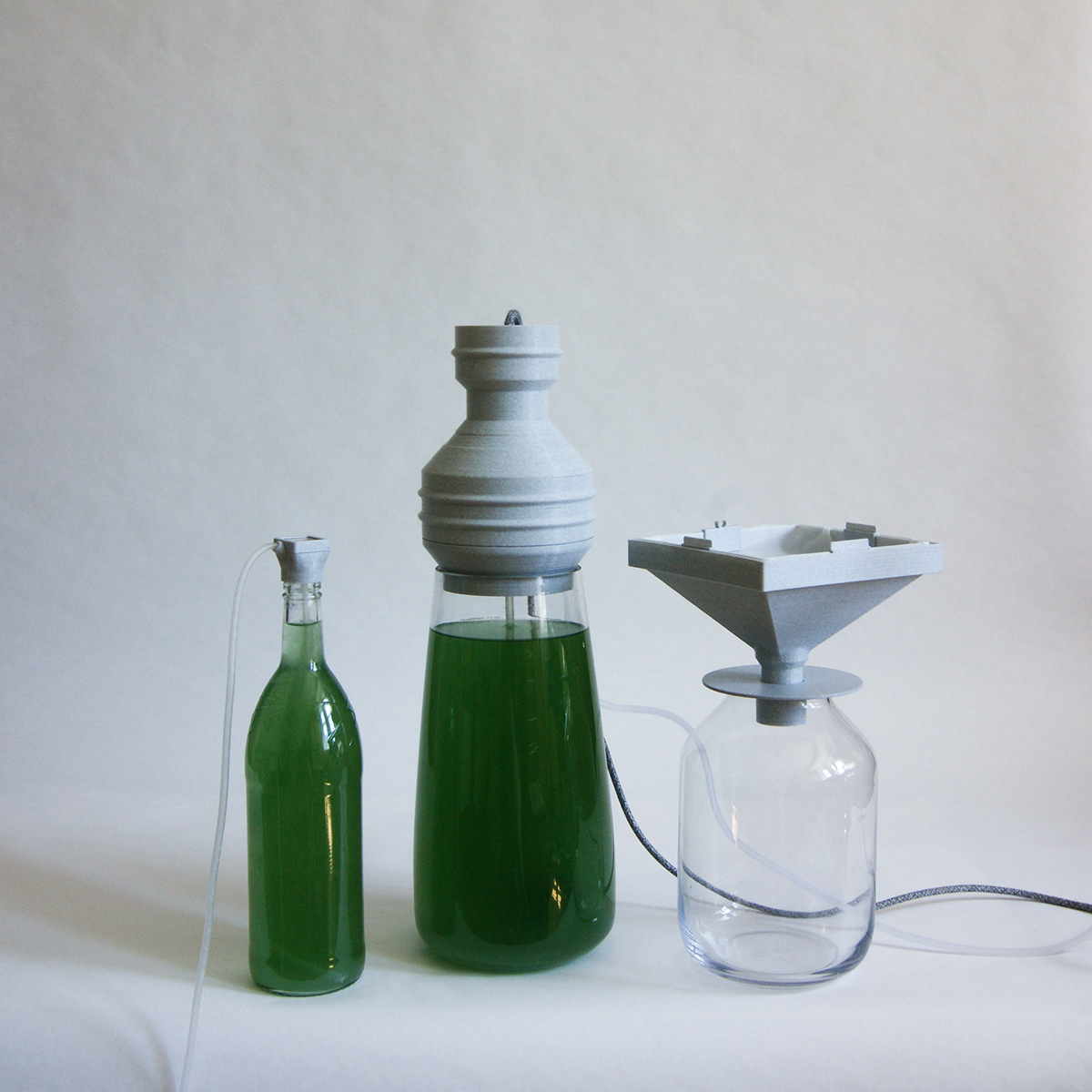
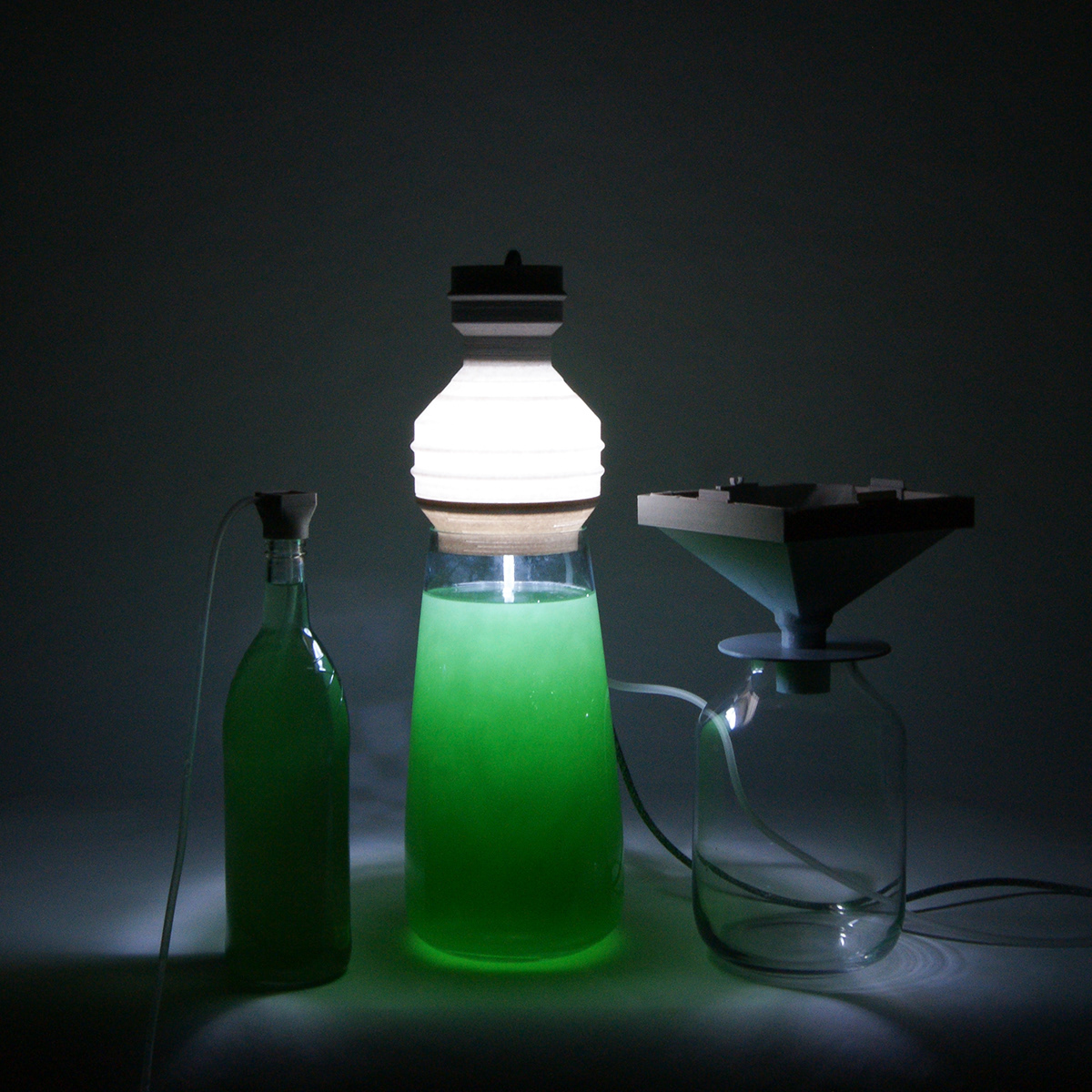
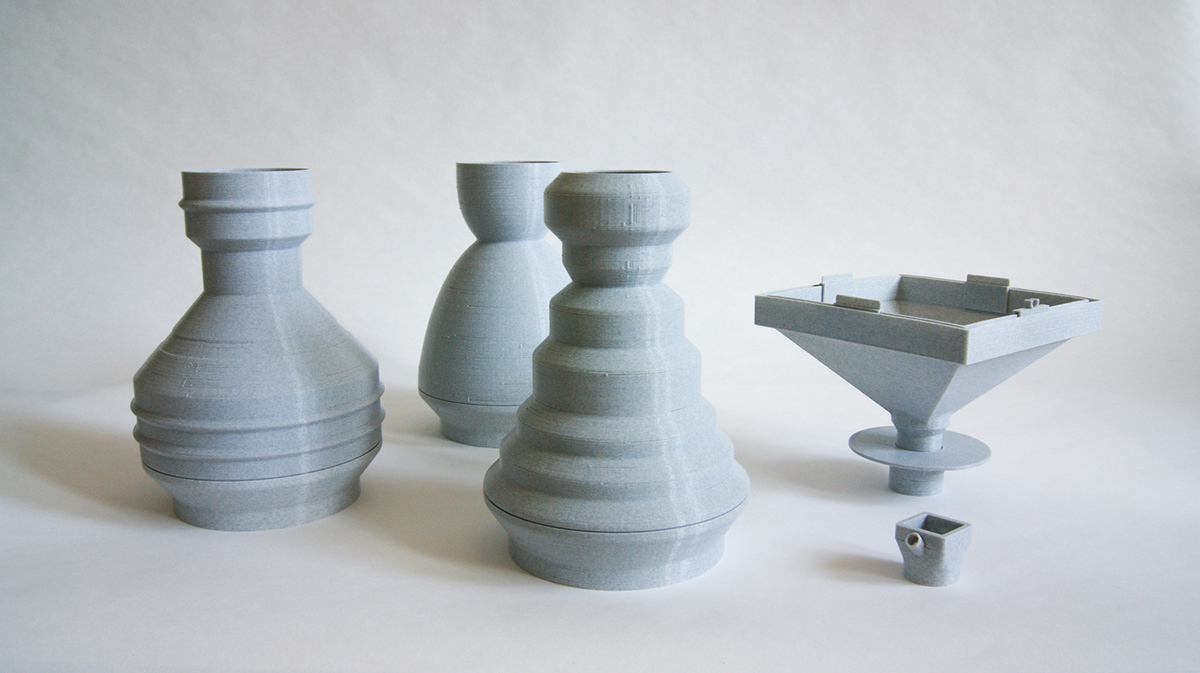

This project focuses on knowledge sharing and creating an inclusive and empowering community through design. It encourages people to source globally available materials locally and guides them towards a sustainable lifestyle by introducing the principles of local production and consumption. The cultivation tools themselves are the enabler for people to start producing their own food and rethink the food production system/process in a fundamental way.
The method of communication is focused on the basic understanding of the ‘whys’ before the ‘hows’. It is highlighted on the website that if the users fail to understand the purposes of responsible design and consumption, then it is not recommended to purchase any equipment or download the files in any case as this project intends to help people create less waste, not more.

